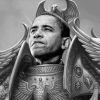- 06 Jun 2013 15:41
#14249847
Im shocked, i didn't know Argentina was in such a bad shape both economically and politically. Im shock a leader of a country could think money laundering is the answer to a nations economic downturn. And im also shock Because of the Governments and university policy university now offer a blend of Marxism, Fascism, and utopian policies that has led to Argentina's free fall rather than its rebirth.

Argentina's President Cristina Fernández de Kirchner has hit on a novel way to try to alleviate her self-inflicted economic free fall and acute shortage of hard currency -- invite money launderers from around the world to put their dollars in Argentine banks with no questions asked.
That's not, of course, the official plan. But this month's move is the latest in a series of steps that seem more rooted in magical thinking than in economic reality that have pushed Argentina ever closer to financial ruin and international pariah status. The government-sponsored amnesty to allow any amount of dollars from anywhere in the world to find a home in Argentina, with no questions asked, was passed into law last Wednesday. The justification is the need for hard currency because the current economic policies have drive up the value of the "blue-" or black-market dollar to 10 pesos while the official exchange remains pegged at 5 pesos.
In recent months, the Fernández de Kirchner government has imposed import and export policies that have led to chaos, shortages, massive capital flight, and a 20 percent fall in foreign reserves. The president has ramped up her attacks on the independent media while spending hundreds of millions of government dollars on advertising to shore up official media outlets, while moving aggressively to neuter the independent judiciary that has consistently blocked her worst impulses from becoming law.
In its foreign relations, Argentina, through expropriations and contempt for international law, has antagonized traditional allies such as Brazil, Spain, and the United States -- while growing ever closer to Iran, a U.S.-designated state sponsor of terrorism allied with Venezuela and Cuba. Argentina has become a major way station for Bolivian and Peruvian cocaine headed to West Africa and then onward to Europe, while the government's anti-U.S. rhetoric has grown increasingly strident. The International Monetary Fund has threatened to suspend Argentina for falsifying economic data in order to hide the impending collapse.
The architects of these unorthodox policies are a group of messianic young presidential advisers and government officials known as "La Cámpora," who believe they are the vanguard of a transformational generation that will help Argentina regain its rightful place as a world leader. Their leader is Máximo Kirchner, the president's son. One of the Camporista's leaders is Cecilia Nahón, appointed ambassador to the United States at the end of last year.
As a matter of policy, Camporistas do not speak to independent media, choosing instead to use government-controlled social and traditional media to spread their message and attack their enemies. No government official, including members of congress, responded to interview requests for the report that informed this article, or for the article itself.
The Camporistas take their name from Héctor José Cámpora, an unconditional ally of the late dictator Juan Domingo Perón and of the armed radical left wing of Peronist movement that became the Montonero guerrillas. Cámpora served as president for 49 days in 1973, just long enough to sign an amnesty to allow Perón, then living in exile, to return and run for president.
Most of the Camporistas cut their political teeth in radical university politics in the early 2000s as the country in 2001 defaulted on some $100 billion in sovereign debt and fell into chaos. Now they offer a blend of Marxism, Fascism, and utopian policies that has led to Argentina's free fall rather than its rebirth. The group, with Máximo's support and the president's ear, has taken over many of the most important government revenue sources, including the national airline, Aerolineas Argentinas, which, since being re-nationalized, loses $2 million a day and operates with virtually no accountability or oversight, according to airline audits and investigative reports.
Nahón's mentor and co-author of many academic publications, Axel Kicillof, was the CFO of the airline as it imploded, and is the architect of the 2012 expropriation of the Spanish oil company YPF, whose oil production has dropped sharply since the takeover. Kicillof, now deputy minister of economy, and Nahón also helped engineer the "nationalization" of billions of dollars in private pension funds, now also under control of Camporistas.
It is this casual disregard for the rule of law and the rules of economics that make the decision to open the financial sector to billions of dollars in suspicious money so alarming. Earlier this year, before the law was proposed, the State Department had already expressed concern that "money laundering related to narcotics trafficking, corruption, contraband, and tax evasion occurs throughout the financial system." Senior members of the Fernández de Kirchner government are currently involved in a widely reported roiling money laundering scandal in which the president's deceased husband and predecessor as president, was allegedly involved.
The president's own auditor general asked the Senate not to pass the law "because of the opening it entails for the possibility of laundering," he said, and called the measure a huge invitation for criminal groups to have their money "legitimized through fictitious companies."
But with vital midterm elections coming up in October -- and The Project, as the Camporistas call their long-term plan of political domination (their motto is "Let's go for everything"), at risk -- it is unlikely the Fernández de Kirchner government will modify its course. With her popularity sliding, corruption scandals simmering, and inflation rising, she is likely to continue to pour money into failed policies to stave of collapse until after that vote.
Fernández de Kirchner has decided to operate outside the rule of law and international standards of accountability and transparency. It is time for the United States and others to begin treating her government as the rogue state it has become.
http://www.foreignpolicy.com/articles/2 ... g?page=0,1
Im shocked, i didn't know Argentina was in such a bad shape both economically and politically. Im shock a leader of a country could think money laundering is the answer to a nations economic downturn. And im also shock Because of the Governments and university policy university now offer a blend of Marxism, Fascism, and utopian policies that has led to Argentina's free fall rather than its rebirth.














 - By wat0n
- By wat0n